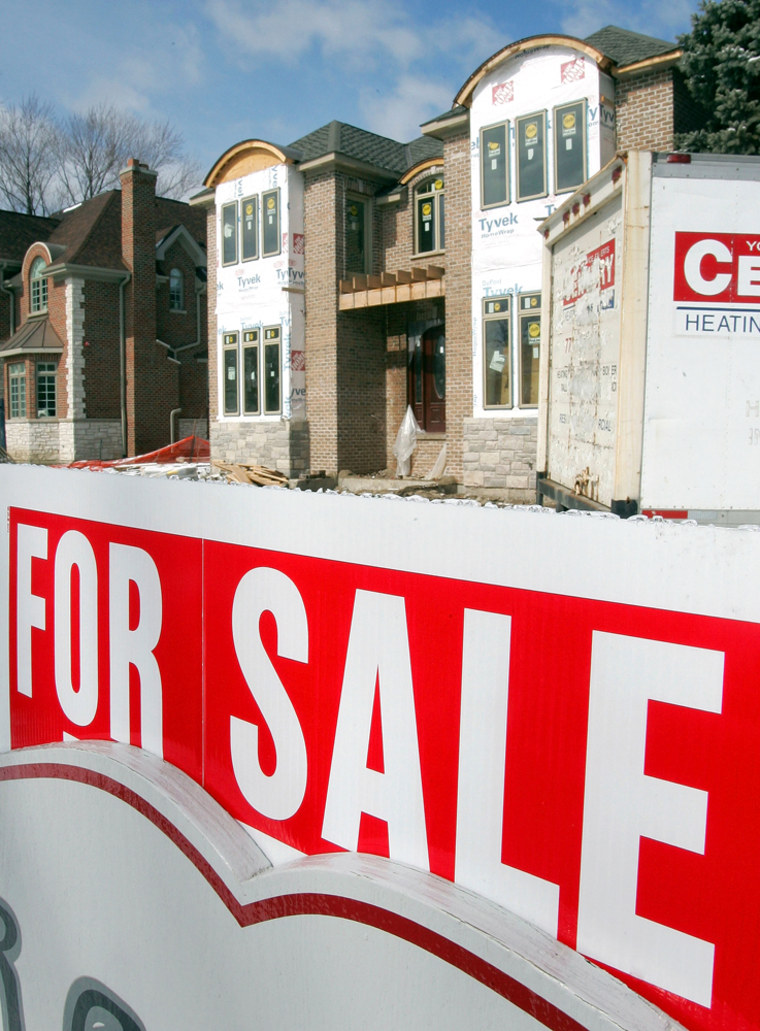U.S. house prices climbed at their fastest pace since 1979 last year, but the rate of increase slackened towards the end of the year.
The average house price increased by just over 11 percent over 2004, according to the Office of Federal Housing Enterprise and Oversight, which provides the most comprehensive gauge of the U.S. property market.
The figures showed some slowdown from the third quarter of last year, when house prices increased by a blistering 4.79 percent over the quarter or 19 percent annualized. In the final three months of the year, prices increased by a more modest 1.69 percent - the slowest rate since the first three months of the year, when prices rose at 1.59 percent.
Economists have long been expecting the pace of growth in U.S. house prices to moderate. Tuesday's figures provide some sign that this may be happening but the evidence is far from conclusive. The quarterly data is relatively volatile.
"This report reflects a slowing of the tremendous house price appreciation we've seen recently but it is still growing at a strong pace," said Armando Falcon, the director of OFHEO.
The strength of the market has been vital in sustaining the U.S. economy in recent years, helping to buoy consumer spending despite volatility in financial markets and sluggish jobs growth.
Many economists fear that house prices in many U.S. states are now overvalued and may fall back.
High-demand areas
The fastest pace of property rises was seen in Nevada, where high demand in Las Vegas helped push prices 32 percent higher over the year. Properties in Hawaii, California and the District of Columbia all rose by more than 20 percent in 2004.
Economists are divided over how much of a risk the U.S. housing market poses to the United States. Interest rates are expected to rise relatively gently over the coming year, with most analysts expecting the rate of a 30-year fixed rate mortgage to rise from just under 6 percent to around 7 percent by the end of the year.
With steady employment growth expected, such a modest pace of rising interest rates is thought unlikely to be enough to puncture the housing market and cause prices to fall nationwide.
"The market does appear to be gradually slowing," said Pat Newport, a housing expert at Global Insight, the economic consultancy. "Prices will probably come back into line with earnings through sluggish growth over coming years rather than a sharp fall."
Others worry housing market bubbles do exist in several of the wealthiest U.S. state, such as New York, Connecticut, Florida and California.
"If prices decline in these areas, it could certainly take some of the steam out of the U.S. economy nationwide," said Ian Morris, U.S. economist at HSBC in New York.
